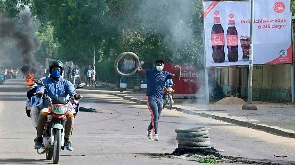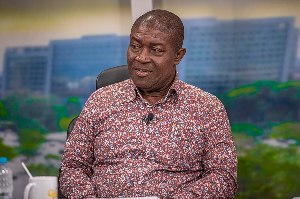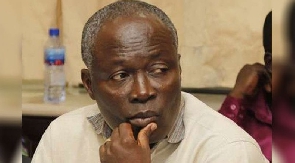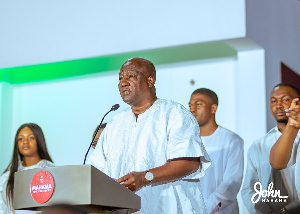The African Union (AU) is attracting criticism for looking the other way at the situation in Chad, where a president was assassinated last year ahead of the inauguration for a new term, plunging the country into a chaotic transition period.
And on Thursday, pro-democracy civil society organisations on the continent said the AU has refused to whip Chad with the same style as other errant countries in the past, a situation they argued had created impunity in N’Djamena.
The groups wrote to Namibia, the November chair of the African Union Peace and Security Council — the continental body’s most powerful 15-member organ on security policy across Africa — to lament about the worsening civilian situation in Chad.
They included the Open Society-Africa, the Pan Africa Lawyers Union (PALU) and The African Meeting for the Defence of Human Rights known by its French acronym (RADDHO).
‘Dangerous precedent’
“A dangerous precedent is being set in the Chad case, whose goalposts keep shifting in fundamental ways,” they charged.
“The breaches to AU norms focusing on rule of law and democracy strengthening as contained in the ACDEG are being undermined with impunity by General Mahamat Deby, and his junta.”
They were referring to the African Charter on Democracy, Elections and Governance, a 2007 continental policy that forbids coups or other unconstitutional changes in government. Violating countries have traditionally been suspended from the African Union until they revert to civilian-led governance.
In April last year, President Idriss Deby of Chad was assassinated on a battlefront where he had commanded his troops against insurgents. He had just won his sixth term in office and was awaiting inauguration. His son, Mahamat Deby, immediately led a military take-over as the head of a military transition council for 18 months.
Extension
In October, Gen Deby was sworn in as president of Chad for another 24 months, following a ‘dialogue’ with some opposition groups. He has since named opposition politician Saleh Kebzabo as the new prime minister. But Washington rejected this extension.
Civil society groups argue Chad was treated differently even when it violated constitutional norms including a coup. In the last 20 years of AU’s existence, in which it witnessed 20 coups, member states where it happened and purveyors of those putsches were suspended from the continental body, except Chad in 2021 and Zimbabwe in 2017.
“The passive stance taken by the PSC (Peace and Security Council) on the unconstitutional change in Chad is now being seen by that country’s military as a ‘green light’ to oppress its citizens,” the letter said.
“Almost 20 days after the announcement of the extension of the transition period and the endorsement of General Deby’s candidacy for 2024/25 elections, the government went ahead and violently cracked down on protestors in what rights groups dubbed a massacre.”
Some reports indicated more than 200 people were killed in October as they protested against the government. AU Commission Chairperson Moussa Faki Mahamat, a Chadian national, condemned the brutal force used on protesters.
Transitional pledges violated
However, the continental body is accused of doing little even as Chad violated all the transitional pledges including the extension of military transition beyond 18 months, violating human rights and establishing a transitional council as a law-making body.
“Nothing short of an immediate suspension of Chad from AU beckons, as was done to other countries whose democratic journeys were interrupted by military coups.”
The Democracy Charter also says that perpetrators of unconstitutional change of government be barred from running in subsequent elections meant to restore democracy. In Chad, Gen Mahamat Deby will be eligible to contest for the presidency at the end of the transitional period.
The African Union Peace and Security Council did not immediately respond to the letter but it is expected to sit on Friday for a session on continental peace and security.
The council comprises of Kenya, Burundi, Cameroon, Congo-Brazzaville, Ghana, Morocco, Gambia, Djibouti, Nigeria, Ethiopia, Zimbabwe, Uganda, Senegal and Tunisia.
Click to view details



Africa News of Friday, 11 November 2022
Source: theeastafrican.co.ke

















